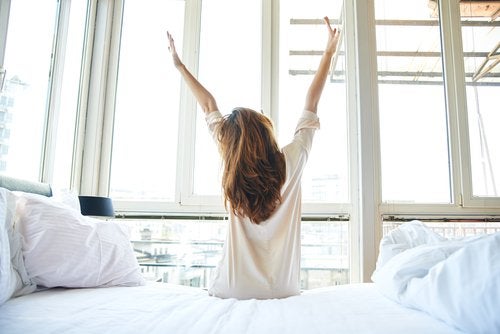Want to know the benefits of regulating your body’s internal clock?
Light has always been associated with positive emotions, in summer, when the days are longer and there is more light, it seems that joy multiplies, there are no more unforgettable moments than those we spend on good morning by the sea, doing a picnic in the mountains or sunbathing on a small terrace.
- Summer and spring.
- With their light.
- Are periods of expansion.
- Adventure and experimentation; a counterpoint to autumn and winter that.
- With their rains and shorter days.
- Motivates us to return to the refuge of our home.
Our body, which is also part of nature, perceives changes in the environment and, through physiological mechanisms such as the secretion of hormones, makes us feel more or less excited depending on the cycle or season in which we find ourselves.
Similarly, our mood and energy vary with the seasons, with the shortest cycles, with night and day.
The hypothalamus is a small region in the deepest part of the brain called the reptile brain, it is a fundamental structure responsible for regulating basic vital processes, such as body temperature, food and fluid intake, libido, as well as regulating emotions. hunger or satiety, anxiety or tranquility, depending on the hormones that this part of the brain secretes.
Like everything that has to do with the brain, it is a very complex structure, but we know with certainty that one of the factors that decisively influence the function of the hypothalamus is the light it perceives in the environment.
The brain has evolved from the hand of nature, so the ‘natural’ is that during the day, when the brain is flooded with sun, it understands that it is the time of activity and, at night, when it is dark, it is the time of rest and regeneration. These schedules are no longer so fixed. With artificial light we can stay awake until dawn.
This change in natural cycles makes it difficult to adjust the internal clock and affects our health.
Our internal bodies and clocks are designed to respect light cycles, during the day we need to receive sunlight to maintain optimal energy levels, artificial light does not replace sunlight, so in many cases we feel tired and need a coffee to revive. We.
“Where the air and the sun enter, the doctor does not enter. Popular saying?
In the long run, a direct sunlight deficit increases the risk of depression. That is why in winter, when the days are shorter and we leave work when it is dark, it is much more common to suffer depression. In addition, the sun is the most important source of absorption of vitamin D, fundamental for the fixation of calcium in the bones.
A surprising example of the power of light in our body has to do with how we wake up, normally we set the clock to wake up at a certain time in the morning and the alarm suddenly interrupts our sleep, we turn on the light, going directly from the dark from night to daylight in seconds.
In nature, dawn is something that happens gradually, and our brain is also programmed to wake up in this way. With the gradual increase of natural light, the brain gradually wakes up and leaves the dream world. Since we do not respect this natural cycle, it is very difficult to get up in the morning.
In addition to falling asleep at dawn, this way of waking up leaves us tired and stressed throughout the day, because the natural processes of sleep, so necessary for a good rest and regeneration, did not pass without problems.
There are several things we can do to adjust the internal clock
If you feel tired or discouraged and don’t know why, you feel like you lack energy and crawl out of tiredness during the day, check your time routines and try to keep up with nature’s day and night cycles. setting the internal clock, you will notice the difference.

